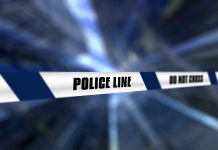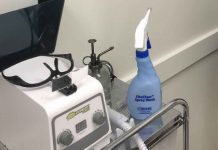Hearing is one of our most vital senses, allowing us to communicate, appreciate music, be alerted to danger, and fully engage with the world around us. However, hearing loss is all too common, affecting people of all ages. The good news is that there are many effective strategies to safeguard your hearing and minimize damage from loud noise exposure. By being proactive, you can preserve this precious gift of hearing for a lifetime.
Limit Exposure to Loud Noises
One of the most important things you can do at any age is limit your exposure to dangerously loud noise levels that can inflict permanent harm on your hearing over time. Here are some tips:
- Wear earplugs or earmuffs when using loud equipment like lawn mowers, leaf blowers, power tools, etc. Look for noise reduction ratings (NRR) of at least 20 decibels. Foam, silicone, or custom-molded earplugs provide the best protection.
- Lower the volume when listening to music in headphones, especially for extended periods. Aim for less than 50% maximum volume. Take regular listening breaks.
- Avoid excessively noisy venues like nightclubs, stadium concerts, monster truck rallies, etc. If you do attend, use protective earwear. Music concerts can reach 110-120 decibels, well into the danger zone.
- Ask your doctor about prescription earplugs if you work in loud environments like construction, manufacturing, airports, etc. These provide customized attenuation. Even with protection, limit time spent around industrial machinery noise.
- Limit use of personal audio players to 1 hour daily at moderate volumes. Seek volume-limiting devices to be safe.
Give Your Ears Time to Recover
If you are exposed to any loud noises, make sure to allow enough time afterwards for your hearing to bounce back before bombarding it again. For example, wait at least 16 hours after a concert before using a leaf blower. Also, take regular listening breaks if you need to be around noise for prolonged periods. Ears that are repeatedly assaulted by sound waves without relief are more prone to permanent damage over time.
Get Annual Hearing Checkups
Routine hearing exams can detect early signs of hearing loss. Adults should get tested every 3-5 years until age 50, then every 1-3 years after that. Seniors over 70 should get annual exams, since age-related hearing decline accelerates later in life. For children, follow your pediatrician’s recommendations, as even young ears are susceptible to damage. Getting your hearing checked regularly allows problems to be addressed before they worsen. A baseline audiogram in your 20s creates a reference point.
Monitor for Warning Signs
Be alert for common symptoms of hearing impairment like having to ask others to repeat themselves, difficulty following conversations in noisy environments, needing to turn up the TV or radio volume, or ringing in the ears. Bring up any concerns with your doctor promptly. Sudden or rapid hearing loss should be treated as a medical emergency. The sooner issues are diagnosed, the better the outcome.
Practice Hearing Health Habits
- Use earplugs or protective headsets when swimming to keep water out of ear canals. This prevents swimmer’s ear infections and leakage damage.
- Avoid inserting foreign objects into your ears like cotton swabs, which can cause impaction and infection. Never try to dig out or scrub earwax, which protects your ears.
- Follow doctor’s orders if you are prescribed ear drops to treat infections; don’t stop too soon. Completing the full course is important.
- Have wax buildup removed professionally to prevent blockage and hearing issues; don’t try removing it yourself by digging, picking, squirting water, etc. See an audiologist for safe removal.
- Avoid smoking and secondhand smoke, which increase the risk of hearing loss. Smokers are almost twice as likely to develop hearing problems.
Choose Safe Headphones
Today’s headphone market is flooded with options, but not all are hearing friendly. Opt for noise-cancelling, wireless, or bone conduction headphones to avoid having to turn up volumes to drown out background noise. Look for built-in volume limiters. Avoid models that sit inside your ear canal like earbuds. Over-ear headphones or soft earpads are safer. Don’t use headphones if external sounds like traffic and alarms can’t be heard.
Protect Children’s Hearing
Kids’ ears are delicate and vulnerable to early damage. Some tips for safeguarding their hearing:
- Monitor volumes on headphones and devices; install limiters. Discourage blasting music directly into their ears.
- Suggest swim caps or ear putty when swimming to keep water out of ear canals.
- Have them wear hearing protection when loud noises are present like at concerts, construction sites, racetracks etc. Earmuffs are easier for kids than earplugs.
- Discourage inserting small objects into their ears. Teach them to never put cotton swabs or other items in their ears.
- Advocate for noise-reduction measures in their schools, like carpeting, closing doors, monitoring cafeteria noise.
- Have their hearing evaluated by age 4-5 so problems can be caught early.
- Be attentive to any signs of hearing impairment or speech delay. Address issues promptly.
Beware of Hidden Culprits
Many everyday sounds can degrade hearing over time without you realizing it. Be especially mindful of:
- Traffic noise pollution: Cars, trucks, sirens, horns, and engines contribute to urban noise exceeding safe levels.
- Household appliances: Blenders, vacuum cleaners, hair dryers, and other machines generate high decibels in enclosed spaces.
- Power tools: Chainsaws, leaf blowers, skill saws, and more all produce extremely loud, dangerous sound levels.
- Aircraft: Jet engines create intense noise both on the ground and in flight. Pilots, crew, and frequent fliers are at heightened risk.
- Movie theaters: Surround sound films crank up the volume to 118-127 dB during action sequences, jeopardizing patrons.
Consider Preventive Treatment
If caught very early, some types of hearing loss can be treated with injections, medications, or dietary supplements to improve blood flow or protect ear cells. Hearing aids are also an important preventive treatment option, as they can help amplify sounds to safe levels before permanent damage occurs. Getting fitted with hearing aids at the first signs of hearing decline can help prevent unnecessary deterioration. Discuss all options with your audiologist or ENT. Experimental treatments like stem cell therapy and gene editing also show promise for the future. Staying on the leading edge of preventive care is key.
Our sense of hearing allows us to fully experience and engage with the world. Following the practical tips in this article can help you safeguard your precious hearing at any age. Be proactive by limiting your exposure to loud noise, getting regular hearing checkups, making hearing-conscious choices, and practicing good ear care habits. With some awareness and precaution, you can reduce your risk and keep your ears working well for decades to come. The ability to hear life’s beautiful and meaningful sounds is worth protecting.







